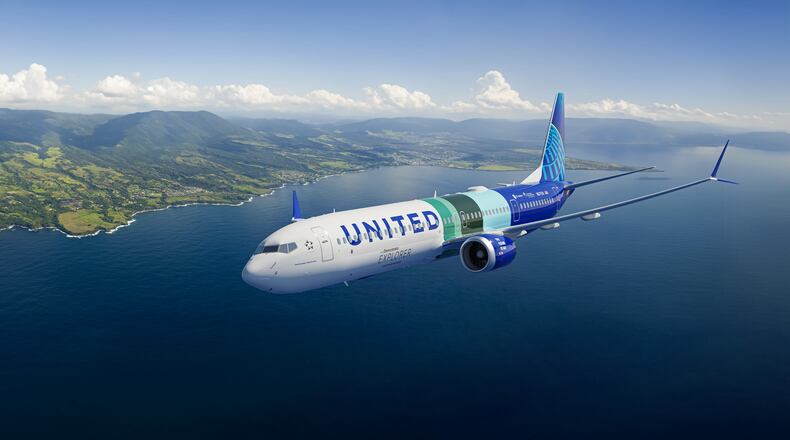NASA’s DC-8 Airborne Science Lab will fly behind the commercial jet and measure emissions produced by each type of fuel and contrail ice particles, the companies said.
The goal: To better understand how certain fuels, engine combustor designs and other technologies might reduce atmospheric warming.
There are strong Ohio and Dayton-area ties to this work.
GE Aerospace is providing technical expertise to help make the flight and emissions research possible. The ecoDemonstrator Explorer plane is powered by LEAP-1B engines made by CFM International, a West Chester Twp.-based 50-50 joint company between GE and Safran Aircraft Engines.
And the University of Dayton Research Institute is also involved, providing fuel analysis for the effort, including research into the relationship between fuel composition and gaseous emissions, a GE spokeswoman said.
Credit: Jim Noelker
Credit: Jim Noelker
UDRI has supported the Boeing ecoDemonstrator program for the past three years by providing fuel chemical and property analyses, UDRI said in a statement to the Dayton Daily News.
The university “uses its unique start-of-the-art methods to provide fuel chemical composition data for the source fuel and for fuel samples as they travel from the tank to the engine,” UD said.
“We at GE Aerospace proudly support this groundbreaking research collaboration that will deepen our scientific understanding of the impact of (sustainable aviation fuel) on emissions for a more sustainable future of flight,” GE Aerospace Vice President of Engineering Mohamed Ali said in a statement.
Another Dayton-area connection: The NASA DC-8 “flying lab” stayed at Wright-Patterson Air Force Base in July as the flagship of a two-week federal government study to examine air quality above mega-cities.
About the Author


